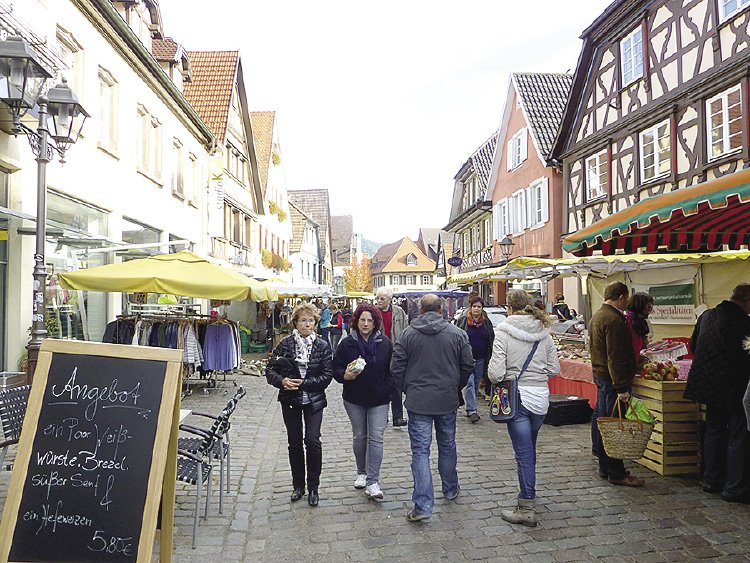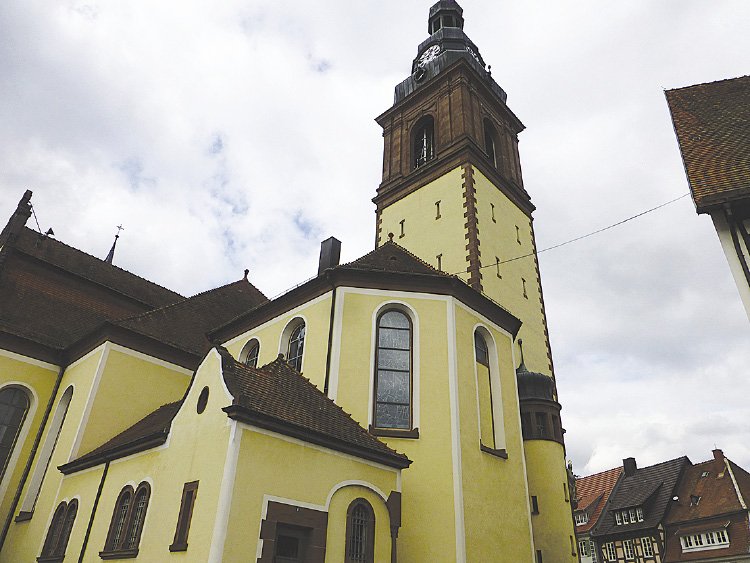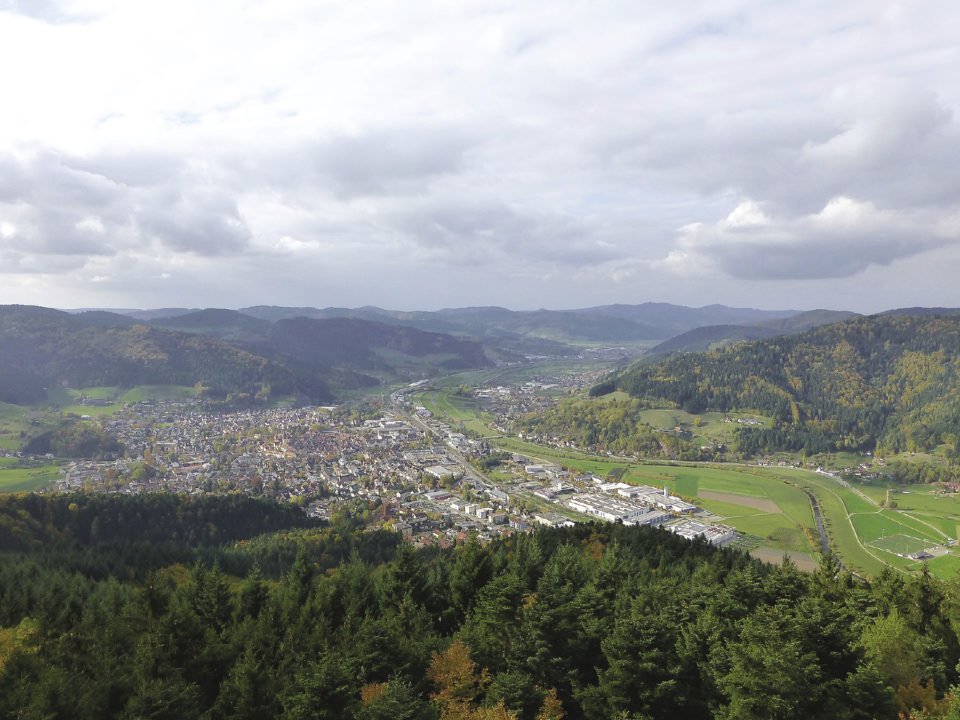As someone who has done quite a bit of traveling, I always struggle with the question about why I choose to travel. Among travel’s many benefits, it can be difficult to sum up the seemingly endless reasons that could ultimately draw me to it. But despite all the good that can come from traveling, what I cherish the most is the opportunity to build connections and make friends with people from around the world, people who not only show impeccable kindness, but who inspire me to become an even better person myself.
Amidst our extensive European backpacking venture, my husband and I found ourselves in southern Germany in mid-October. We were traveling toward the Black Forest for the most interesting wedding present we had received: a visit to a small village called Haslach im Kinzigtal (Haslach for short). It was a village I had never heard of before; certainly not one to top the list of must-see places in Europe. But some friends of ours had fallen in love with the area many years ago, so much so that at one point they had even started their own tour business taking Americans to visit Haslach. So when this couple gifted us a stay in the village that meant so much to them, we were thrilled to accept.
The Beautiful Black Forest
It was a bright autumn day when we stepped off the train in Haslach. It was a small town, only around 7,000 people, nestled in the Kinzig River valley among the rolling hills of the Black Forest. Much more green than black (and tinged with October gold at our arrival), we would hear more than one local puzzle over why this region was dubbed the Black Forest. The ultimate answer was the ancient Romans found the thick conifers dark and mysterious. While the locals may have regarded the backdrop of their everyday lives as anything but mysterious, even I had to appreciate the evocative, fairytale charm that lay in the name, and the childlike curiosity it conjured up.
The village of Haslach itself definitely has a fairytale charm to it. Germany is a diverse country, with bustling modern cities and slower country life. Most of the “traditional” German villages that tourists envision (complete with cuckoo clocks and polka music) can be found in southern Germany in regions like Bavaria and the Black Forest. While not stereotypical, stepping into Haslach felt like going back in time, with cobblestone streets, half-timbered buildings, and manicured gardens. As we made our way to our gasthaus, we passed by bakeries, woodworking shops, and taverns before crossing over the Kinzig River where we found an adorable yellow inn set against the backdrop of the expansive forest. It was a welcome sight after many nights spent either in hostels or our tent.
We settled in and learned more about the area, including its more sobering history as the location for a concentration camp during World War II. Today, a memorial and a path of remembrance sits at the site of the former camp to commemorate the lives tragically lost there. Nearby the memorial is a lookout tower that was built in 2014, and offers expansive views of the rolling hills, river valley, and village of Haslach below.
A Kind and Simple Life
The pace of life in Haslach was slow and relaxed, and our time there brought us across the paths of people who had chosen to forgo a busy urban life in exchange for simple living, tight-knit communities, and natural beauty that could be found in the Black Forest.
The family who owned the gasthaus we were staying in were friends of our friends who had gifted us our stay in Haslach. Having heard that we would be arriving, they met us the night of our arrival and offered to take us out to dinner. We learned that the inn they owned had been in their family for four generations, and that they loved the sense of connection that came with having deep roots in one place and working together as a family.

The restaurant they took us to was an organic farm-to-table restaurant high in the hills above Haslach. The owner of the restaurant was another memorable character: a middle-aged Londoner, he decided one day that he had had enough of the corporate world and fast-paced London lifestyle. So one morning he decided to pack up, move to the Black Forest, and begin his dream of opening a restaurant that centered on quality, local ingredients. He didn’t even let the language barrier stop him, becoming fluent in German over the course of one year. We asked if he’d ever want to go back to his former lifestyle. His answer? “Never.”
Additionally, we had the chance to visit a traditional farm in the neighboring countryside. The family who ran the farm were also friends of our friends, and they were more than willing to put aside their work and give us a glimpse into their daily lives of living off the land.
They gave us a tour of their home and barn, which were, in fact, combined into one: in traditional Black Forest style, homesteads were built so that half of the building was designated for people, and half for animals. This helped conserve more heat than having a separate barn for livestock. At the farm, the family made their own meats, bread, milk, butter, and cider, and every week hosted people for a home-cooked meal from their freshest ingredients. We got to greet a calf who had just been born that morning, sample fresh milk, and learn how to make schnapps, a local tradition among farming families in the Black Forest.
Looking back, I sometimes wonder if meeting these local families that enjoyed a simple life in a naturally beautiful area had any influence on our later decision to move to the rural North Shore. It’s difficult to pinpoint an exact catalyst, but I wouldn’t be surprised if being among this community had some effect, at least subconsciously, on the kind of life we valued and wanted to live ourselves.
Felted Hearts and Lasting Impressions
Toward the end of our stay, we’d heard that a local neighborhood was having a small festival, an annual event that they put on both as a celebration and a fundraiser for the community. We walked into the main building where the festival was to take place, a simple hall set with long rows of folding chairs, only to find that the event was winding down and the volunteers were beginning to clean up. But before we could back away, the host approached us and asked where we were from. Upon learning that we had come to the area from so far away, she presented us with steaming plates of sausage and french fries and two mugs of beer. We sat down at the last table standing, and as we began our meal, a pair of young girls approached our table. They exchanged nervous glances with each other, and then one of them shyly held out a felted purple heart.

“We want to thank you for coming to our festival,” the girl said. I took the little heart, obviously homemade, and thanked them for the welcome they had shown. They blushed and hurried back to help their parents clean up, leaving us with the simplest and best souvenir we’d come across on all our travels.
The people of Haslach showed us a genuine kindness and hospitality that outshone any we’d receive in Europe’s more mainstream destinations. Our time there showed us the goodness present in these small communities off the beaten track. And even in the midst of the stunning Black Forest, it was the people of Haslach who would make the most lasting impression.
Today the felted purple heart hangs in our kitchen in Grand Marais, another small town in a beautiful forest that’s filled with even more amazing people. We’ve hosted many people in that kitchen, including over a hundred travelers. That favorite souvenir reminds us of the incredible kindness we were shown as travelers to a small town, and of our mission now to pay it forward.






